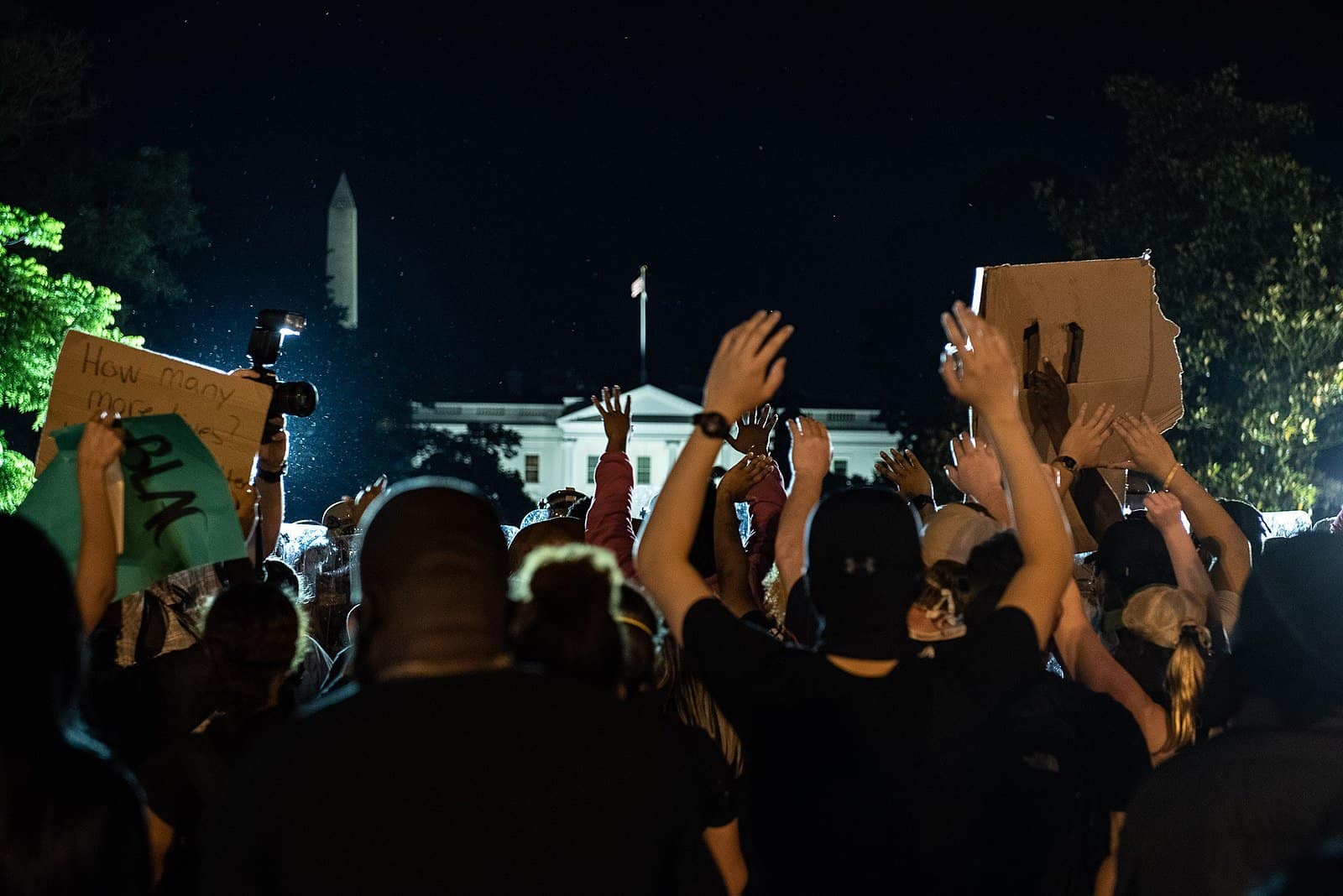
Jon Levitan is a student at Harvard Law School and a member of the Labor and Employment Lab.
The uprising in response to the murders of George Floyd, Breonna Taylor, and Ahmaud Arbery has left a mark on the labor movement. After protestors broke windows and set the lobby of the AFL-CIO’s headquarters ablaze on Sunday night, the Amalgamated Transit Union Local 689, a majority black local that represents transit workers in metro Washington, D.C., has said the incident must spark reflection within the labor movement. In a press release, Local 689 said the questions that unions must answer are: “Why did young black and brown workers, frustrated with constant injustice, not view the AFL-CIO as their natural ally with over a century of experience in the struggle for equality? Why did they not recognize that act as burning their own house? What are we doing over the next few weeks to ensure that these workers out in the streets understand that the labor movement stands with them? What are we as a labor movement willing to do to help dismantle systemic racism in this country? What can we do to help bring justice to George Floyd, Breonna Taylor, and Ahmaud Arbery?”
The relationship between the labor movement and police unions is being questioned. The vast majority of unions have stood on the side of the protestors. For example, in a Monday statement, the Communications Workers of America stressed that cross-racial solidarity was essential for the viability of the labor movement and argued that “[w]e will never build enough power as working people if an entire community is living under the threat of death and subject to discrimination based on the color of their skin.” Police unions, on the other hand, protect their members’ ability to abuse the black and brown communities they are meant to serve. And they have become explicitly aligned with President Trump, a plutocratic leader who, according to Paul Krugman, can only offer “affirmation and cover for racial hostility” to the white working class voters that supported him in 2016.
In an essay for The New Republic, Kim Kelly wrote that police unions have fundamentally divergent interests from the modern labor movement, “which concentrates on organizing many of the same low-wage, service-sector communities of color who are disproportionately abused and harassed by police.” Kelly called on the AFL-CIO to disaffiliate from the International Union of Police Associations, which represents over 100,000 police officers and emergency medical personnel, and permanently refuse to affiliate with any police unions moving forward. Even recent history aside, Kelly wrote, the police have never been on workers’ side: “[d]uring the Battle of Blair Mountain, the police fought striking coal miners on the bosses’ behalf. In 1937, during the Little Steel Strike, Chicago police gunned down 10 striking steelworkers in what became known as the Memorial Day Massacre.”
Hundreds of Facebook employees yesterday staged a virtual walkout – refusing to work and adding an automatic reply to their emails – in protest of Facebook’s refusal to take any action when President Trump used his Facebook page to post “when the looting starts, the shooting starts.” Mark Zuckerberg defended the decision to leave Trump’s post up without attaching a warning, as Twitter did, arguing that Facebook is “an institution committed to free expression.” One Facebook employee responded in an internal message board, “[t]he hateful rhetoric advocating violence against black demonstrators by the US President does not warrant defense under the guise of freedom of expression.” The walkout adds to a growing trend of strikes and walkouts over the last few years by white collar workers that are not necessarily aimed at bread-and-butter workplace issues but rather seek to pressure their employers to behave in a more ethical manner, as Andrew Strom recently wrote about.





Daily News & Commentary
Start your day with our roundup of the latest labor developments. See all
April 19
Alabama and Louisiana advance anti-worker legislation; Mercedes workers in Alabama set election date; VW Chattanooga election concludes today.
April 18
Disneyland performers file petition for unionization and union elections begin at Volkswagen plant in Tennessee.
April 18
In today’s Tech@Work, a regulation-of-algorithms-in-hiring blitz: Mass. AG issues advisory clarifying how state laws apply to AI decisionmaking tools; and British union TUC launches campaign for new law to regulate the use of AI at work.
April 17
Southern governors oppose UAW organizing in their states; Florida bans local heat protections for workers; Google employees occupy company offices to protest contracts with the Israeli government
April 16
EEOC publishes final regulation implementing the Pregnant Workers Fairness Act, Volkswagen workers in Tennessee gear up for a union election, and the First Circuit revives the Whole Foods case over BLM masks.
April 15
The Supreme Court ruled in favor of bakery delivery drivers in an exemption from mandatory arbitration case; A Teamsters Local ends its 18-month strike by accepting settlement payments and agreeing to dissolve